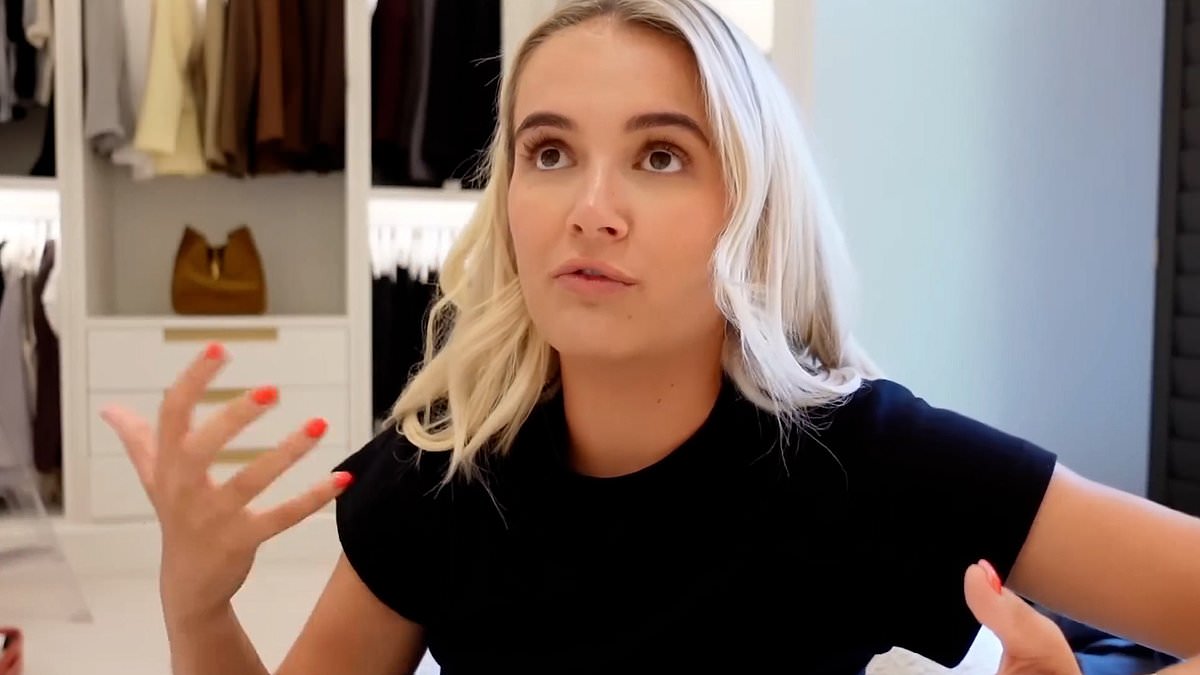
Molly Mae Hague’s Honest Take on Toddler Biting and Parenting
In a heartfelt YouTube video, Molly Mae Hague, influencer and young mom, shared her personal struggles with parenting her two-year-old daughter, Bambi. The 26-year-old influencer revealed a series of honest reflections after learning that her toddler had bitten other children at nursery—a behavior that conflicts with Molly’s vision of raising a kind and compassionate child.
Molly’s story resonated with many parents as she admitted feeling torn about how to discipline her daughter effectively. In her video, she expressed frustration and vulnerability, saying, “It’s the complete opposite of what I want my child to be.”
The Parenting Dilemma: Gentle Discipline vs. Consequences
The mom-of-one shared her concerns about the nursery’s gentle parenting approach, which emphasizes empathy and positive reinforcement over traditional discipline. According to Molly, Bambi’s nursery encourages children to use their words instead of their mouths and refrains from implementing punitive methods such as timeout or reprimanding behaviors.
While Molly respects the philosophy, she’s unsure if the method is impactful enough to discourage biting. Reflecting on her daughter’s actions, she said, “She knows the environment she’s in. She isn’t going to get told off; she won’t have anything taken away. But is that the right approach? Whatever we’re doing now isn’t working because this is the second time it’s happened.”
The influencer also opened up about consulting AI assistant ChatGPT for parenting guidance, a move she felt might be considered controversial but found helpful nonetheless. She received advice on focusing on the present rather than punishing Bambi hours after an incident since toddlers at her age struggle to connect delayed consequences with their behavior.
To Reward or Not to Reward?
Molly faced another challenge when she debated whether to take her daughter for ice cream after the biting incident. She worried that the outing might inadvertently reward bad behavior but also felt conflicted about ignoring a traditional bonding moment. Discussions with her sister, Zoe Rae, further deepened the dilemma as differing opinions left Molly searching for the best approach.
Later in the video, Molly humorously yet honestly acknowledged the embarrassment parents often feel in these situations. “It’s so embarrassing because it’s the complete opposite of what I want my child to be—kind, gentle, and caring. But she’s two and a half, and she’s testing boundaries. Parenting isn’t easy, and I want to get it right.”
How Parents Can Address Similar Behavior
Molly Mae’s transparency has sparked conversations about parenting strategies in similar situations. Experts recommend books on positive parenting and teaching kindness to children, such as books or storytelling that introduce the concept of empathy and emotional regulation. Additionally, looking for tools like illustrated activity books can help reinforce behavioral lessons interactively.
Consider products like the “Kindness Counts” Activity Set—ideal for young children learning about gentle behaviors. Stories featuring relatable characters navigating emotions can address topics such as biting, hitting, or other common challenges.
Parental Encouragement and Real Talk
Many fans applauded Molly Mae for her openness and relatability, with followers leaving comments such as, “You are doing your best, Molly! Don’t stress too much about it. It’s a phase and not a reflection of you as a parent.” Others encouraged storytelling techniques and roleplay games as gentle ways to discourage biting while teaching kids alternative ways to express frustration.
Molly also revealed she felt better after addressing the incident personally with the affected child’s parent, which demonstrates her commitment to modeling responsibility.
In the end, the conversation surrounding Molly Mae’s parenting journey highlights the struggles, growth, and relatability of modern families. Whether you lean towards gentle parenting or prefer a firmer approach, the key takeaway remains clear: parenting is a constant learning curve, and support from a community can make all the difference.



